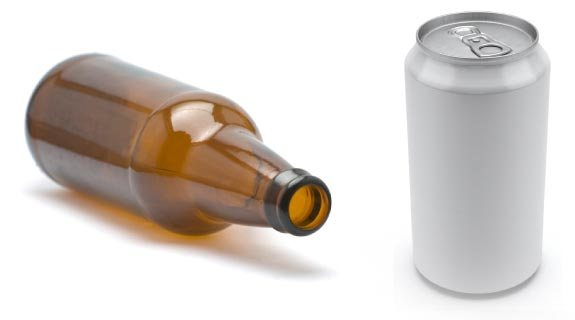It’s the ultimate prize for New Zealand’s hardiest shearers, woolhandlers and woolpressers – who’ll be crowned the toughest of them all?

I grew up in the Wairarapa, and I’ve driven past the giant golden clippers outside Masterton thousands of times. But the 53rd annual Golden Shears was the first time I’d spent a weekend in the War Memorial Stadium watching male and female athletes, sweat streaming from their brows, liberate sheep from their heavy woollen fleeces.
Clippers flew and the smell of lanolin plugged up my nose as spectators argued over the odds, this year’s world record, and whether veteran shearer David Fagan would capture his 17th open title. But Golden Shears is so much more than New Zealand’s Wimbledon of shearing. By the end of the event, I’d witnessed three life lessons in action.
Relax and enjoy
Deano Smith is a master shearer who owns a shearing contracting business in Gisborne. After his top 30 open grade heat, he told me about the advice he’d given his sons competing in the junior and novice shearing categories. Relax and enjoy it, he’d said.
On stage in front of the 1,000-strong audience, there’s music blaring, sheep wriggling, sweat streaming, five other competitors side-by-side and commentators discussing whether you’ve had enough Weetbix. Deano reckons his dad might not have taught him much about gear, but he did pass on the value of working hard and paying attention to the details.
And Deano has taught his kids all that. But when it came time for pre-competition advice, he took a different tack. “What’s the point in making it to the stage in front of all those people after all your hard work,” he told his sons, “if you’re not enjoying what you’ve worked for?”

Dig deep
Whether you’re woolpressing 160kg of loose wool into a bale, setting an eight-hour four-stand lamb shearing record, woolhandling ten fleeces, or bending over 20 squirming sheep, it’s pretty clear that you’ll have to dig deep. It’s damn hard work.
Nowhere was courage more evident during the weekend than the performance of six-time winner and defending Golden Shears open woolhandling champion Joanne Kumeroa. Despite being in the midst of chemotherapy treatment for cervical cancer, she gave her competitors a run for their money in the open woolhandling final, where competitors sort the wool of ten sheep (six long-wool and four second-shear fleeces).
Although it was Joel Henare who pulled off the win, the standing ovation afterwards showed how much the audience admired Joanne’s gutsy yet graceful performance, which gained her second place.
We’re all in it together
More than 200 volunteers are needed to make Golden Shears happen – from the judges to the always-smiling local woolhandlers and pressers, to the Wairarapa Young Farmers doing the heavy lifting as they catch and ‘tip’ the sheep for the judges once they’ve come down the chute post-shearing. It culminates in the final event of the weekend, the Golden Shears itself – the open shearing final.
Six finalists each shear 20 sheep, which this year’s top four contestants achieved in less than 17 minutes. Only 0.33 points separated the top three, but 26-year-old Rowland Smith emerged as the new Golden Shears champion.

“Winning the Golden Shears isn’t about the money – this is going to the Cancer Society,” Rowland announced before swinging the gold and purple trophy high. He said he wanted to donate the $3,000 prize to charity in honour of his mum, Cristal, who’d recently died of cancer. It brought the audience to their feet.
Rowland’s act topped off a weekend of generosity. Also donating winnings to the Cancer Society were the women’s invitation shearers and the Australian woolhandling team.
In total, more than $11,000 was raised.
Golden Shears competitors hail from all over New Zealand as well as further afield: Australia, Scotland, Wales, Korea and Germany. Yet the weekend was marked by an incredible sense of inclusivity. There aren’t many sporting events where the predominately Kiwi audience joins the small Australian contingent in singing the Aussie national anthem, before turning to ‘God Defend New Zealand’.
It didn’t matter whether you worked in a shearing gang from Raetihi, the Isle of Man, Piopio, Whangamomona or Winton – or whether you were part of a shearing dynasty or had just joined the sport while on your OE from Germany. Everyone was in it together. I wasn’t the only person in the Masterton War Memorial Stadium blinking away tears at the sportsmanship, leadership, tenacity and generosity on show.

Shear brilliance
In 1958, the Wairarapa Young Farmers’ Club came up with a brilliant idea: holding a shearing competition at their local Agricultural and Pastoral (A&P) Show. When shearers turned up from all over the country to take part, they knew they were on to something.
At the time, there wasn’t a national shearing championship – but competitive spirit abounded. So the Young Farmers found a bigger venue, the Masterton War Memorial Stadium, and chose a sufficiently prestigious name: Golden Shears.
The first Golden Shears in 1961 was so popular the army had to be called in for crowd control. Seats were snapped up a year in advance through the 1960s and 70s, before the advent of live television.
Prize money and sponsorship interest increased year after year, and competitors began to embark on training regimes that had more in common with professional athletes than farm workers.
The first Golden Shears champion and runner-up in 1961 were brothers, Ivan and Godfrey Bowen. They’d had plenty of practice – during the Second World War they’d been exempted from military service in order to continue the crucial work of shearing, working seven days a week. In 1953, Godfrey set a world record for shearing 456 ewes in nine hours at a station in the Manawatu (Ivan was to break his record later).

The brothers revolutionised shearing through what was eventually dubbed ‘the Bowen technique’. It involved changing the pattern of shearing ‘blows’ and stretching out the sheep’s skin with the non-shearing hand – innovations which produced a more uniform fleece. Uneven fleeces were not only inefficient, leaving more wool on the sheep, but commanded lower prices on the market.
Godfrey soon caught the eye of the New Zealand Wool Board, who saw a winning combination in his shearing talent and gift for public speaking. He became its chief shearing instructor, touring the world to demonstrate his technique. The Wool Board weren’t the only ones impressed: Russian premier Nikita Khrushchev made Godfrey a Hero of Socialist Labour on his 1963 visit to Russia. The Bowen technique was eventually adopted worldwide.
Godfrey also saw shearing’s potential as a spectator sport. Knowing how compelling it could be to overseas visitors, he opened Rotorua’s Agrodome in 1971.
Golden Shears is still the top shearing prize in New Zealand. This year’s event, which coincided with the World Shearing Championships, featured more than 600 participants from
25 countries.
Find out more about the world of shearing sports and spectator events at www.shearingsports.co.nz & www.goldenshears.co.nz
Auckland-based Lottie Hedley specialises in documentary-style photography. Her last feature for Good was on an Amish family in Maine.







